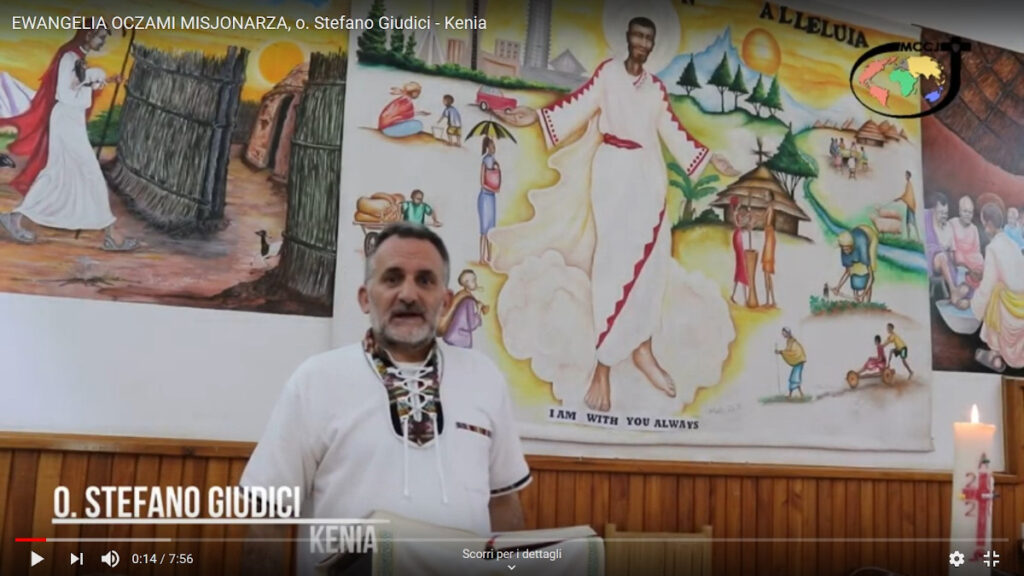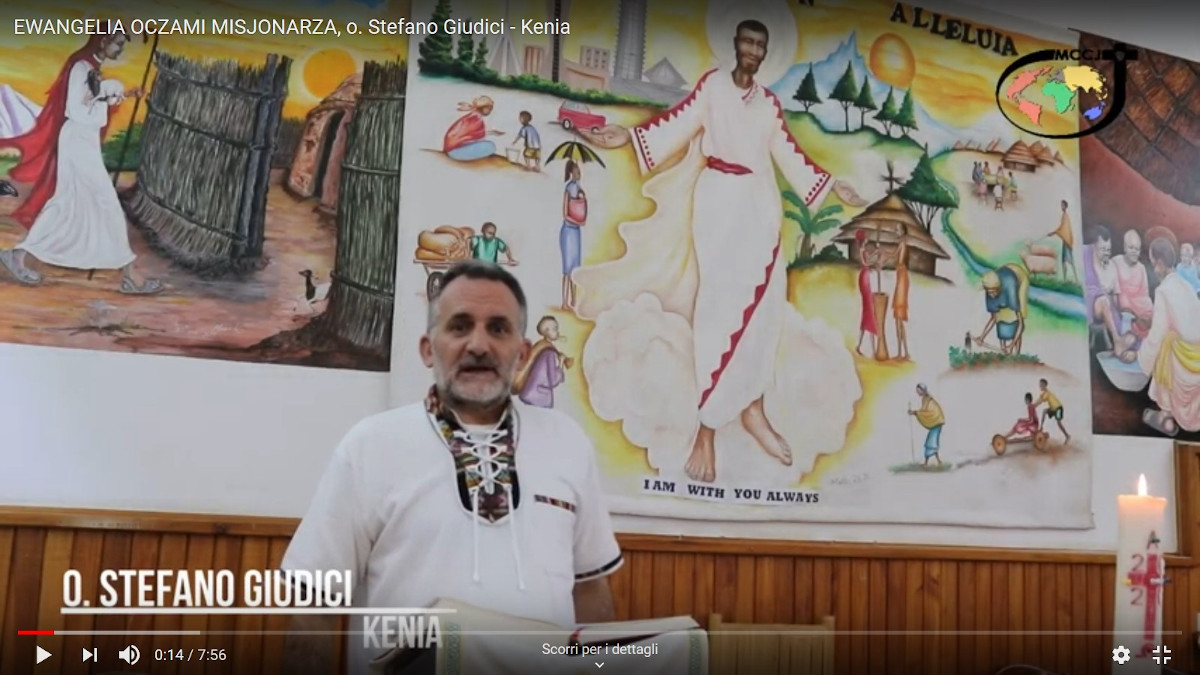
We can tentatively define ministeriality as the Church’s transformative presence at all levels and of all dimensions of society. Hence, ministeriality indicates a service of the Church to the contemporary world, through a diffuse presence in society, like the yeast in the dough, transforming it towards the ideal of the Kingdom of God. Ministeriality goes beyond the Church boarders to the society at large where Christian live and express their faith in the daily work.
We know how this presence in society has changed through the centuries, as well as its conceptualisation in the Church’s magisterium. We have moved from separatist models, attempting to create an alternative, holy society, to more recent understanding of a Church immersed and incarnated in the world, yet not of the world. The concept and practice of ministeriality have also followed the same journey of transformation. We are shifting from power to service; from almost exclusively Church-focused ministries to accepting that pastoral action for social change is broader than the Church, beyond the borders of the formal Christian communities.
No need to say that, in this process of revival of ministeriality, Vatican II represented a milestone. The Church radically changed the understanding she had of herself, passing from being a fortress under siege or a ark in troubled waters to being a community of disciples, a ‘people of God’ in the contemporary world (see Gaudium et Spes). The vision of Vatican II had an enormous impact on all ministries in the Church. Membership in the Church was not measured anymore on priestly ordination and submission to ordained ministers but on baptism. All forms of lay apostolate, across all aspects of the life of the Church, by any member of the Church –whether lay or ordained– stem from baptism, and they are direct participation in the saving mission of the Church (Lumen Gentium 33).
It should not be a surprise, therefore, that the event of Vatican II and its aftermath has seen the emergence of new movements in the Church, all linked to potentially new ministries: the liturgical movement, the biblical movement, the peace and human rights movement, the ecumenical movement. To this, we add the emergence of an entirely new consciousness and competence of lay people in society. Paul VI extended the central ministries of the Word (office of Reader) and the Altar (office of Acolyte) to all lay people, now conferred not by ordination, but by institution so to distinguish them very clearly from the sacrament of priesthood (Ministeria Quædam, 1972).
In the troubled years after Vatican II, ecclesial lay movements grew in importance, especially during the pontificate of John Paul II. They embodied the spirit of the Council, i.e. the presence of the lay in the society, underlying a certain independence from the traditional, territorial Church. Lay gathered not any more, or not only, according to a territory (the traditional parish), but more according to other criteria like profession, religious culture, spirituality. These movements were the direct transformative presence of the Church in society, founded on the spirit of Vatican II. However, some of them were progressive, open to newness, in honest dialogue with the contemporary world, ready to a mutual exchange for the collective growth. Others, on the other hand, were nostalgic of a past when there was a more visible presence of the Church in society as a clear point of reference and moral guide. Post-Vatican II theology and pastoral practice did not succeed in eliminating or reducing, the historical tension concerning the different modalities of the presence of the Church in the world.
The advent of Pope Francis and his pontificate can be considered another milestone in the development of a new Christian awareness and the Church’s presence to today’s world. Some scholars define Francis as the first truly post-Vatican II Pope, in the sense that he totally incarnates the spirit and the theology of the Council. It was clear at the word ‘go’ of his pontificate, in that evening of his election, when from the Loggia of St Peter, he asked the people to pray for him and to bless him. It was a bright “Vatican II moment”, a moment of magisterium not in written form, but in life (M. Faggioli).
Several aspects of Francis’ life and teaching mark a new consciousness of the Church about herself and her role in society. For reason of space, I will mention only a few.
The first is a call for the creation of a new mindset: from a unique experience of God as Love to a new vision of the Church as the place where this Love becomes visible, inclusive, unconditional, and efficacious mercy. In such a Church, we begin thinking “in terms of community and the priority of the life of all over the appropriation of goods by a few” (Evangelii Gaudium, 188). Such an attitude necessarily leads to “a new political and economic mindset, which would help to break down the wall of separation between the economy and the common good of society” (Evangelii Gaudium, 205).
The methodology, which Francis proposes is “initiating processes rather than occupying spaces” (Evangelii Gaudium, 223): vision and service are more important than self-assertion and power. Hence, ministeriality (Church’s service to humanity) is nothing more than the implementation of the vision: a Church with a ministerial system focused not on power flowing from a role (priesthood) but on a common being (baptismal vocation) and a common path (determined by the Church’s prophetic imagination).
Ministeriality calls for complementarity and collaboration. This is well expressed in the word synodality. Journeying together, “synodality”, is the other fundamental characteristic of the Church envisioned by Francis. Synods existed already before Francis, but he has given them new power and role, making them events of true communion and ecclesial discernment (Episcopalis Communio, 2018). Some say that synodality is the real paradigm shift in his pontificate; undoubtedly, it is a constitutive element of the Church. It appeals to conversion and reform within the Church herself, so to become a more listening Church. It also offers new insights for the society as a whole, “the dream that a rediscovery of the inviolable dignity of peoples and of the function of authority as service will also be able to help civil society to be built up in justice and fraternity, and thus bring about a more beautiful and humane world for coming generations” (Francis, Address at the ceremony commemorating the 50th anniversary of the institution of the Synod of Bishops, 2015).
Openness to the dream for a new society involves not only each baptised, but each person of goodwill longing and acting for justice, peace, and the care for creation. The sharing of such a thirst for righteousness and the recognition of what social activists are already doing was the leitmotif of the messages of Pope Francis to the representatives of popular movements, during their World Meetings (2014-2017). Once again, Francis recalled the idea of walking together (synod), supporting the struggle of the popular movements. It is the image of a synodal and ministerial Church, at the service of humanity, which recognises the ministry of many people of different religions, trades, ideas, cultures, countries, continents, and respects the diversity of each one. Francis used the image of the polyhedron (an image used also in Querida Amazonia, 2020): it “reflects the confluence of all the partialities that in it keep their originality. Nothing is dissolved, nothing is destroyed, nothing is dominated, everything is integrated” (Message to the popular movements, 2014). It is the same shift initiated by Vatican II, from a pyramidal structure of the Church to a communal one, in which every richness is recognised and appreciated in its diversity. In summary, the idea of ministeriality is founded on a clear understanding of Church and an identifiable praxis in, for, and with the world, characterised by dialogue, openness, readiness to recognise, to learn from, and to walk together with any person of goodwill engaged for the transformation of the society.
Fr. Stefano Giudici, mccj




